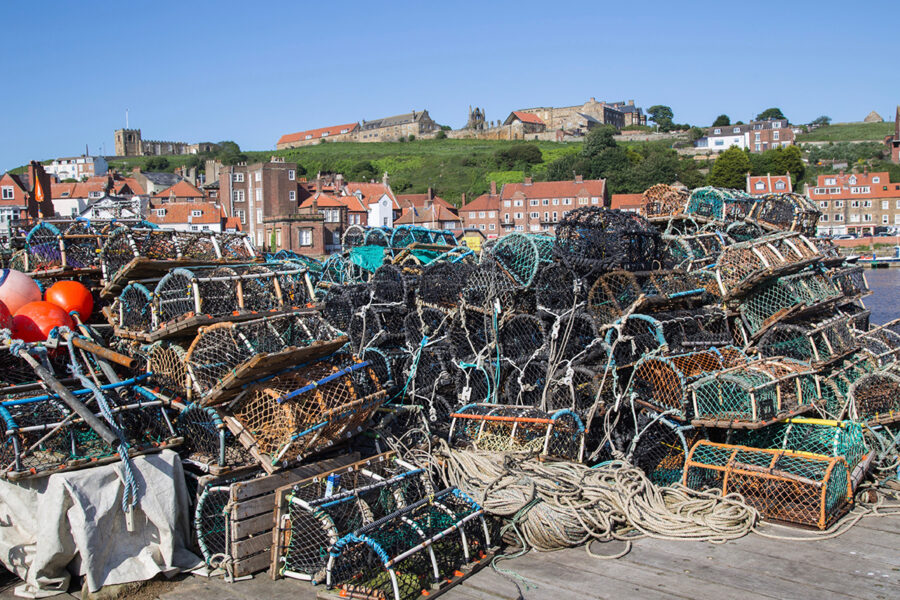Five research projects have been awarded funding totalling over £3.5m in the latest round of the Fisheries Industry Science Partnership (FISP) scheme, part of the £100m UK Seafood Fund.
Seafish, in partnership with Bangor University, South Devon and Channel Shellfishermen Ltd, the Welsh Fisherman’s Association, Devon and Severn IFCA and the MMO, has been awarded £861,517 for a project aiming to fill the gap in crustacean evidence for English and Welsh Fishery Management Plans (FMPs).
It aims to support the development and delivery of four front-runner FMPs across England and Wales for brown crab and lobster fisheries by addressing common evidence gaps critical to the development of robust stock assessments and evidence-based management regimes.
The areas to be examined are the landings structure of English and Welsh brown crab fisheries, the size structure of lobster populations, the benthic impact of brown crab and lobster potting, and the methodology for defining soft-shelled brown crab – with one of the project’s key objectives being to strengthen co-management approaches and industry buy-in to management measures.
Bangor University, in partnership with Orkney Fisheries Association, the Welsh Fishermen’s Association and the British Geological Society, has been awarded £397,312 to study the impacts of climate change on the common whelk.
The project was co-designed following discussion with whelk fishermen and Jim Evans of the Welsh Fishermen’s Association to ascertain areas of concern.
Through shell isotope analysis to reconstruct past temperature and growth, along with tank- based experiments on growth and survivability in whelk, the researchers will aim to predict how growth rates differ by location, and to understand the impact of climate change on potential shifts in the growth, distribution and natural mortality of the species. They will also create temperature risk maps for whelk under different climate change scenarios.
Results from this project will inform fisheries management and contribute to the Whelk Management Group’s objective of improving the long-term environmental and economic sustainability of the industry.
The University of Plymouth Enterprise Ltd has been awarded funding for two separate projects. One focuses on data collection and research on pollack, for the benefit of both commercial and recreational fisheries.
Fishermen have highlighted a decline in pollack across the English Channel, and ICES stock assessments have indicated that there is insufficient evidence to identify exploitation and population trends. The project aims to collect abundance and biomass estimates across the South West across two years to identify spatial and temporal trends and collect information on the species’ life history and habitats, with the aim of supporting the development of an FMP.
The remaining two projects are focused on recreational fishing. The second University of Plymouth Enterprise Ltd project, called ‘Angling for Sustainability’, will aim to fill data gaps on sharks, skates and rays and black bream – ‘the most valued species for chartered boats operating out of the south inshore marine planning area’. The project aims to establish a network of acoustic receivers across the Dorset and Solent region and tag and track 200 black bream and 100 elasmobranchs: undulate ray, tope and smooth-hound.
The final project, by Substance in partnership with Cefas and the Angling Trust, is a marine recreational fisheries survey in England and Wales in 2023 and 2024, which aims to provide the ‘best possible evidence’ on recreational catches and fill identified data gaps.
Final FISP funding round open now
The fourth and final round of the FISP scheme opened last week and runs until midday on 19 January. Projects which involve a partnership between research organisations and the UK seafood industry are invited to bid for funding by visiting: gov.uk
Over the first three rounds of the FISP scheme, £7.5m has been awarded to 29 projects.
In round 1 of the scheme:
- £1.4m was awarded to eight projects
- Three grants were awarded to develop research proposals
- Five contracts were awarded to carry out full research projects.
In round 2 of the scheme:
- £2.5m was awarded to 16 projects
- Seven grants were awarded to develop research proposals
- Nine contracts were awarded to carry out full research projects.
In round 3 of the scheme, with a further £3.5m awarded, all five grants have been made to carry out full research projects.
The UK Seafood Fund was set up to support the long-term future and sustainability of the UK fisheries and seafood sector and provides funding under four pillars: science and innovation, infrastructure, skills and training, and export support.
Last month also saw the second round of the infrastructure scheme open to applicants, with £30m of funding now available to help pay for upgrades to ports, processing and aquaculture facilities.
A further round of the infrastructure scheme is set to open in 2023 to support fleet modernisation in the catching sector, with another future round focusing on the recreational fishing sector.
This story was taken from the latest issue of Fishing News. For more on this, subscribe to Fishing News here or buy the latest single issue for just £3.30 here.








